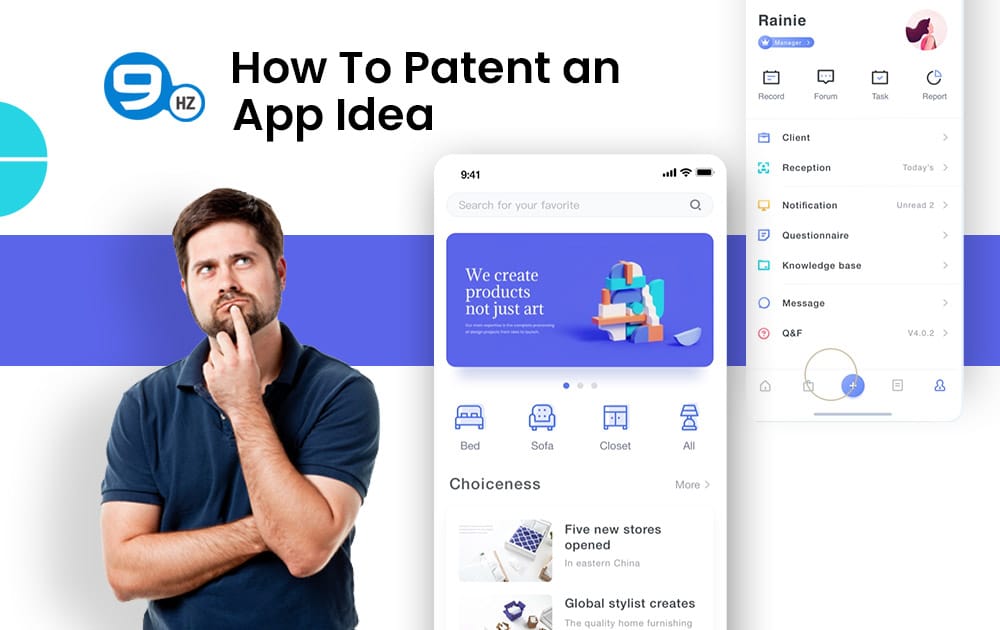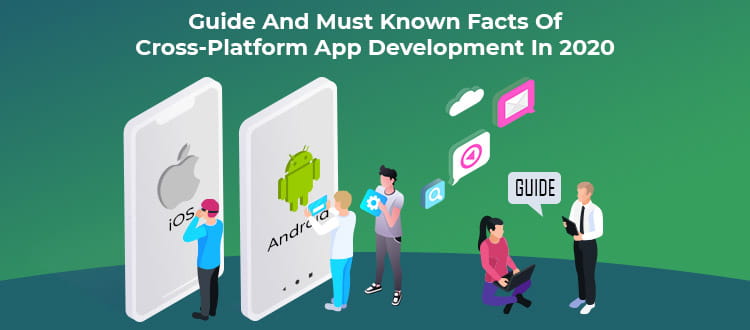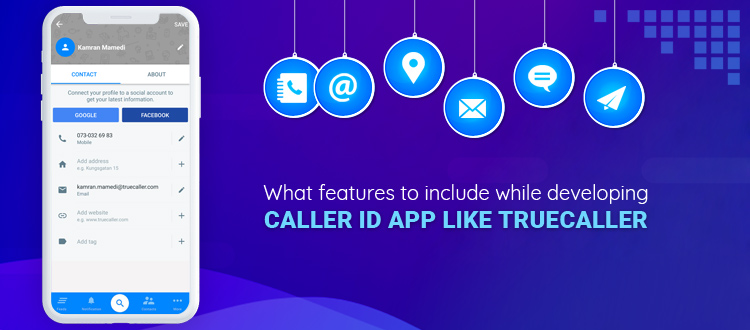Are you afraid that someone might steal your app idea? If so, you may be considering filing for a mobile app patent. But before you do, it’s important to understand the basics of intellectual property law – trademark, copyright protection, and patent law. In general, patents are granted for inventions that are new, useful, and non-obvious. So, if you have an app idea that meets those criteria, you may be able to obtain a patent for your application.
If you’re planning to develop a mobile app, it’s important to consider patenting your mobile app idea before you begin the development process. Working with custom mobile app development company, you can file for a patent, which will give you a year to refine your app concept and determine whether you want to pursue a more permanent patent. This is especially important if you have a unique mobile app idea that you want to protect. Filing patents for a provisional patent application can help ensure that no one else can copy your concept and produce a similar app. In addition, it can give you some negotiating leverage if you decide to sell your app in the future. Overall, filing software patents for a provisional application before beginning app development can be a wise investment in your mobile app concept.
What is patent?
A patent is a form of intellectual property law that provides its owner with the exclusive right to make, use, and sell an invention for a specified period of time. In order to get patent your mobile app idea, an inventor must file a patent with the US Patent and Trademark Office(USPTO).
The patent application must include a detailed description of the mobile application idea, as well as claims specifying what aspects of the invention are protected by the patent. Once the patent filed, it will be reviewed by a patent examiner to ensure that it meets all the legal requirements for patentability. If patent approved, the inventor will be issued a patent. Patenting mobile app ideas is thus the process of seeking intellectual property protection for that idea from the US government. By doing so, you will be granted patent exclusive rights to make, use, and sell your app invention for a specified period of time.
How to Patent an App idea in 7 Steps?
To know ways to patent a mobile app ideas, one must first previously satisfy all the needed criteria of eligibility. Once approved of that, you can follow the given steps on how to patent an app idea:-
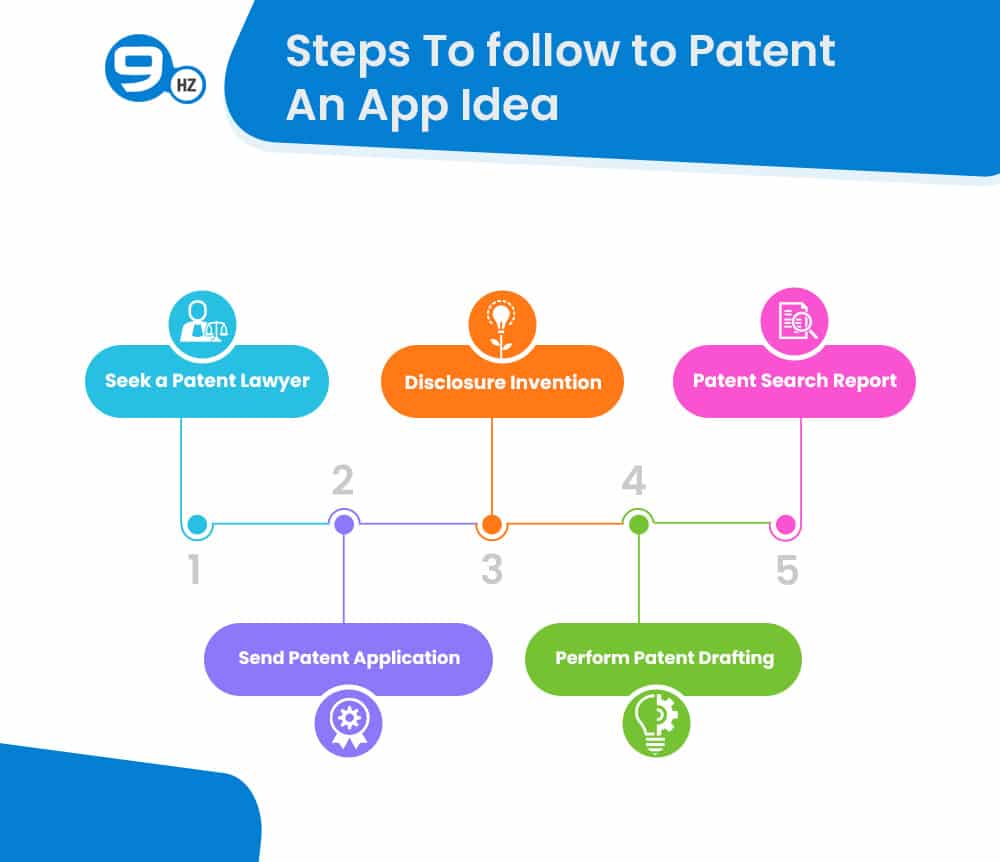
1. Keep a Written Record of Your app idea
patenting an app idea is a process that begins with a written record of the app idea. This record is used to determine whether the app idea is patentable and if so, to help the patent application filing process. This description should include the app idea’s originality and everything from the user interface, back-end functionality and app logo, or any app pattern and other materials that may be helpful in understanding the mobile app invention idea. The written record should also include the official filing date on which the app idea was first conceived.
This date is important because it will be used to determine whether the app idea is eligible for patent protection.
2. Determine if your mobile App invention is patentable
If you have invented a new App, you may be wondering if it is patentable. The answer depends on a number of factors, including the nature of the invention and the country in which you are seeking a patent.
One way to determine if your invention is patentable is to conduct an exercise patent search. This can be done through the World Intellectual Property Organization (WIPO), which maintains a database of patents from around the world. Conducting a search on World Intellectual Property Organization database will help you to see if there are any existing patent that has already been patented.
If you decide to pursue a patent, you will need to file a formal patent claim with the appropriate authorities. This is a legal process that must be followed in order to obtain a patent. It is advisable to consult with patent lawyers before beginning the process, as there are many intricate details involved.
Once you have filed your claim, the authorities will conduct their own search to ensure that your invention is indeed new and unique. If everything checks out, you will be granted a patent for your App. Congratulations! You are now one step closer to getting your invention into the hands of consumers.
3. What kind of patent do you need?
When most people think of a patent, they think of a utility patent. A utility patent is the most common type of patent and is granted for inventions that are new and useful. Utility patents can be granted for products, processes, and machines. Design patents are another type of patent and are granted for unique designs.
Design patents can be granted for the design of a product, the design of a process, or the design of a machine. The patent process is the same for both utility patents and design patents.
4. Prepare your patent application
once you have decided what kind of patent application process is suited for your mobile app ideas. Double-check to make sure you have included all of the required documents in your application. A mistake could cost time or money to avoid this unnecessary situation you can hire professional law firms and patent attorneys. Once you have determined that your invention is novel and non-obvious, you will need to draft a description of the invention. After the description, you will need to write claims that define the scope of your invention. These claims will be used by the USPTO to determine whether your invention is eligible for patent protection.
Also Read: Best Cryptocurrency Exchange App Ideas
5. Submit your initial Patent application
See the patent application guideline on USPTO website. There, you can find information on eligibility and the patent application process. You can also find contact information for USPTO officials who can answer any questions you may have.
Once you have gathered all the necessary information, you can begin the application process by filling out an online form and pay the patent filing fees. Be sure to include all required information and supporting documents. Once your application is complete, it will be reviewed by a USPTO examiner.
6. Work with your examiner
It is important to work closely with your patent examiner during the patent process. The examiner is the one who will determine whether or not your invention is eligible for a patent. By working together, you and the examiner can ensure that the process goes smoothly and that all requirements are met. The examiner will also be able to provide feedback on your invention, which can help you improve it. In addition, the examiner can help you navigate the complexities of patent law. By working together, you and the examiner can make sure that your invention receives the protection it deserves but there is certain patent examination costs.
7. Receive your approval
After you have filed a patent application, you will receive an official notice from the government agency responsible for processing patents in your country. This notice will inform you whether your application has been granted or denied. If your application has been granted, you will be given a official patent certificate, and your granted patent will be valid in the country in which it was granted.
In some cases, you may also receive international patents, which are granted by certain countries in addition to the country in which you filed your original application. These patents provide additional protection for your invention in the countries in which they are granted. However, please note that a granted patent is only valid for the term of the patent, which is typically 20 years from the date on which the application was filed. After the term of the patent expires, your invention will become publicly available and anyone can freely use it.
Mobile app patents Examples
A mobile apps patent is a type of patent that covers the functional aspects of mobile applications. To be eligible for a mobile app patent, an invention must be new, useful, and non-obvious. Common app patent example of inventions that are eligible for app patents include user interface designs, game mechanics, and data processing methods. In order to obtain a mobile apps patent, an inventor must file a patent application with the US Patent and Trademark Office. The provisional application must include a detailed description of the invention as well as one or more claims that define the scope of the invention. Once the patent application is filed, it will undergo a review process to determine whether the invention is eligible for patent protection. If the invention is found to be patent eligible, a mobile apps patent will be issued.
1. Google
Google’s “System and Method for Serving Relevant Advertising to a User of a Mobile Device”. This app patent covers a system and method for delivering targeted ads to users of mobile devices.
2. Zillow
Another mobile app patent example is Zillow’s “Real Estate Search Apparatus and Method”. This app patent covers a real estate search app that allows users to find properties based on their current location.
3. Apple
Apple has also been granted a number of app patent, including one for their “System and Method for Managing Location-Based Reminders”. This app patent covers a system and method for managing reminders based on the user’s location.
4. Samsung
Samsung has also been granted a number of app patents, including one for their “Method and Apparatus for Displaying Information in a ListView on a Mobile Device”. This app patent covers a method and apparatus for displaying information in a list view on a mobile device.
Can You Patent an App Idea?
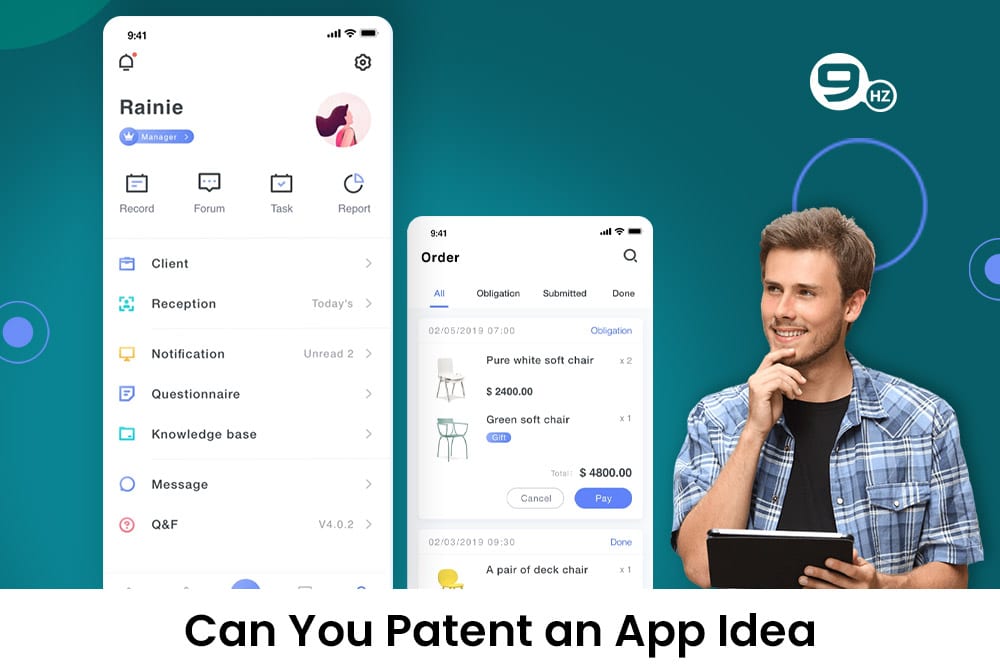
Yes, you can patent an mobile app idea. As the codes of the mobile apps already come under the rules and guidelines of patented property, the codes of the application cannot be patented. However, the ways of interaction with the application can be patented.
The ways of interaction involve whether the app has to be suitable for an Android or smartphone or any other OS of a separate device besides a mobile phone OS. It also includes the process of how to access the app on the phone, where else it can be connected like a server or remote database, and how. These all shall come under while deciding to file for the patent of the mobile app.
But, how can you patent an app idea? The following proceedings shall soon make it clear.
Hire Certified App Developers
Request A Free Quote
Why Patent an App Idea?
If you patent for an app idea that you created, this shall keep your idea or the invention you made safe with you. Following are some of the reasons why should your app idea patent:-
Reasons Why You Should Patent an App Idea
- It protects your rights over the ‘invention’ you have made
- It also grants you access to filing for legal actions in case of infringement of these rights. As a victim of infringement of patent rights, you can even demand compensation.
- As you hold the superior rights over the app, all the actions shall be kept on hold related to the app until you have approved of it.
- The patent rights also forbid any third-party entity to sell off your work without your knowledge or consent. Disobeying the same shall result in legal consequences.
- The originality and creativity of your creation will remain intact and as yours.
Hence, the vital role a patent mark plays flares up ardently.
Different Types of Patent Applications
There are various types of patent applications that come to the patent governing bodies every year. Some of the most common and prominent kinds are listed below:-
Provisional Patent Application
A provisional patent application also called a temporary patent application which is undertaken when an invention remains under development procedures. Nevertheless, it can also be called a preliminary application to gain the claim of priority while applying for patent forms.
Non Provisional Patent Application
A non provisional applications is a type of application filed with the USPTO. The USPTO will not examination a non provisional patent application until it receives a filing fee and a properly completed cover sheet. A non provisional patent applications must include a specification and claims. The specification must include a written description of the invention, as well as one or more drawings if necessary.
The claims must define the scope of the invention. A non-provisional patent application is typically filed after the inventor has conducted a preliminary patent search to make sure that the invention is novel and not obvious. Once filed, a non-provisional patent application is typically assigned to an examiner who will conduct a more thorough patent search process and determine whether or not to grant a patent.
Conventional Application
It involves needing a priority status and claiming it on your patent application. Within a year, all the details are supposed to be filed.
PCT International Application
The PCT international application is filed to get a streamlined patent application in around 142 countries, as per the Patent Cooperation Treaty, all at one go. Thus, your document, design, and idea will be prevented from getting replicated, and your patent will be safe.
PCT National Phase Application
It is a necessary step where the application has to be filed in each country within the 31 months timeline. It protects patents. You have to provide a title, description, claims, and another abstract along with the complete list of specifications.
Patent of Addition
It is applicable if you happen to come across the fact that the patent you are asking for is a slight modification of a similar idea previously patented.
Divisional Application
This allows the applicant to divide the application into two or more furnished applications if the claim has been made for more than one invention with the same deadlines of submission as mentioned already.
What are the criteria for patenting an app idea?
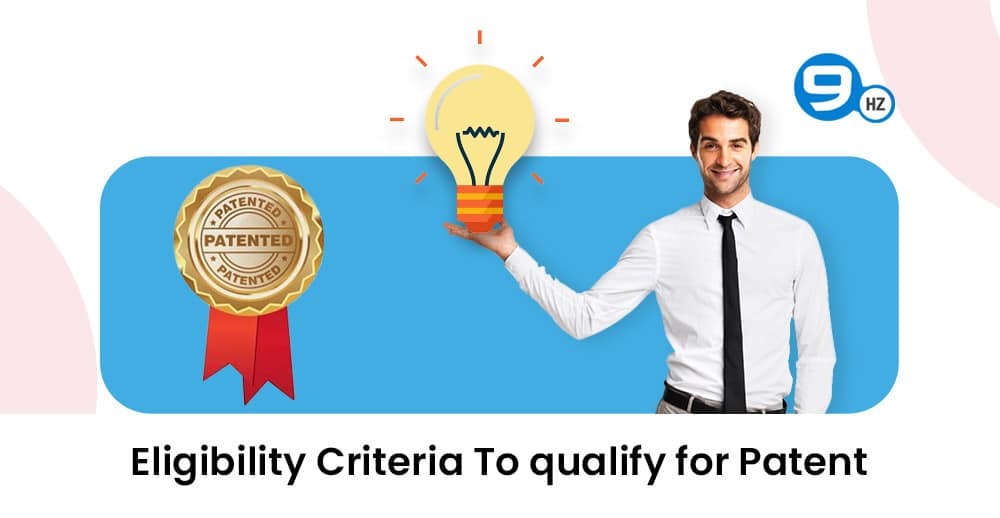
Before you move ahead to patent an app idea, you have to be sure that the newest developed mobile app of yours qualifies in the eligibility criteria set. It is essential to be approved of these basic parameters if you want to know how to patent an app idea and get the patent mark soon.
The eligibility criteria to suffice before stepping on how to patent an app idea are:-
The App Should Be An Invention
Your mobile app development should not merely be a figment of your imagination; it should be your actual invention. The patent for an app idea will only be granted if the mobile application reflects your creativity and intellect.
An invention is meant to fix any issue or problem; according to the guidelines released by WIPO (World Intellectual Property Organisation), an object can only be classified as suitable for being patent if it promises to solve issues. Hence, the mobile app you created should have the ability to make itself useful upon launch in the market.
The App Should Be Your Idea and Unique
The app you have produced shall prove to be no longer an object of wonder and a new theme to ponder upon if the idea has already been utilized earlier. According to Clayton Christensen, the whole emergence of disruptive technology has only been possible because the newest technology introduced is better than the current one in terms of both usabilities as well as uniqueness.
Therefore, to perform the patent activity only when it is unique in comparison to the ongoing scenario of the market.
Plus, your uniqueness should be your idea. Remember that if you have stolen someone else’s idea or already the form of invention you are trying to get a patent exists, your patent might not be approved. It is always better to check these factors before finding footing on how to patent a mobile app ideas.
The App Should Be Useful
Patented items are not meant to be placed in showcases as showpieces. Their goal is to prove their usability. The usability can be of any form: entertainment, making life easier, or any other sorts of benefits.
The patent app, in simple words, has to be suitable for being utilized with a motive. This barrier keeps people from barging into patent apps that do not possess any function of usability.
Also, while applying for the patent for an app idea, you are supposed to mention the category or type of app you have introduced. For example, your app can be a calculator, chess game, shopping app, etc.
Hire Dedicated Mobile App Developers
Request A Free Quote
When Do You Need To File For A Patent?
The anguishing truth behind the patent technology lies in the saddening confession that the patent is not provided to the original creators but to the one who first reaches out with it. The basic criteria only check if the app has already been made and patented, uniqueness and usability.
Therefore, due to the absence of the tedious process of rectifying the actual creator, the companies run forth with their newest inventions as soon as possible without disclosing any important details before the patent mark has been attained.
Hence, once you have finalized the app, perform some final checks, acquire the prerequisite documents for getting the patent mark and move ahead with the patent process of attaining the patent as mentioned above.
Prerequisite Documents Required for Getting the Patent Claim
- Declaration
- Specification
- Entity Status Form
- Application for grant of a patent (duplicate copy as well)
- Power of Attorney (only if an agent is involved. This might require the Convention Application and a PCT National Phase Application as well)
- Drawings
- Application Datasheet
- Fee sheet
- Cover sheet
- Additional document requirements (these are rectified and clarified paperwork from another reputed and trusted organization if the patent material is linked to any of these organizations)
It is to be noted that the documents should be complete and must contain your authorized signature. Specified geographical origin can be required.
How Much Does it Cost to Patent Your App?
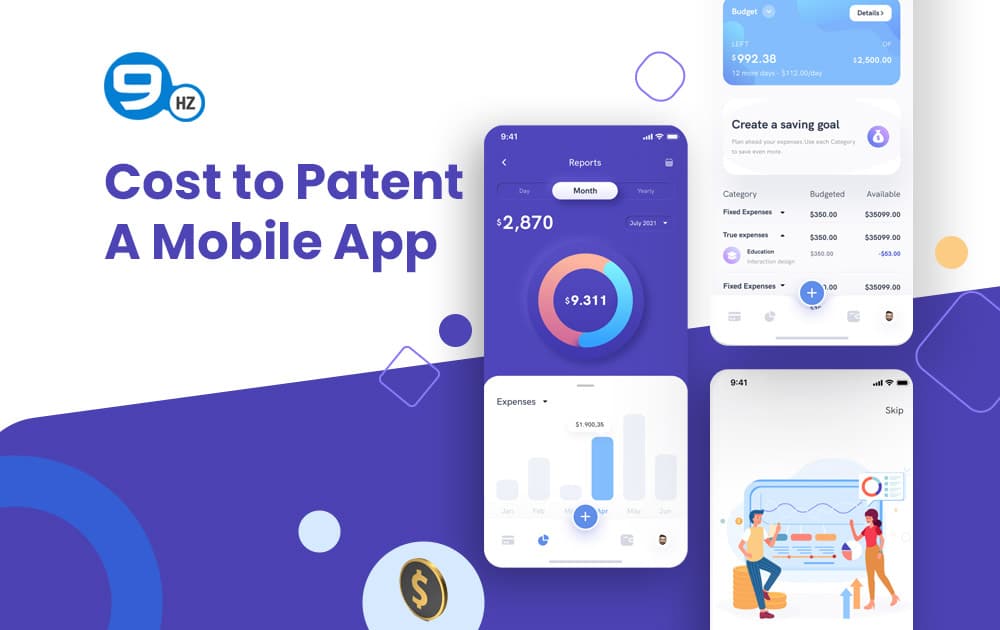
When you have an app idea, you want to protect it so that you can bring it to market and reap the rewards. One way to do that is to get a patent for your app. But how much does it cost to patent an app idea? The answer depends on a number of different factors, including the type of patent you want to file and the country in which you want to file it. In the United States basic patent cost for an app is typically around $2,500 to $5000.
For instance, a utility patent, which covers the function of an invention, typically costs more than a design patent, which covers the appearance of an invention. In addition, filing fees tend to be higher in the United States than in other countries. However, there are ways to reduce the cost of patenting an app idea. For example, you can file a provisional patent application, which is less expensive approx ($2,000 – $5,000) than a non provisional application would you cost around ($10,000 – $15,000). You can also search for prior art to make sure your invention is truly novel. Ultimately, the cost of patenting an app idea is something that should be considered carefully before taking any action.
How Much Time Does It Require For Patenting A Mobile App?
The time required to get a patent might vary from place to place as well as the kind of patent demanded. Due to the huge pile of paperwork, the process can be weary and tedious. To get a patent in India, there are generally two routes present:
Normal Route
While applying for the normal route, the overall grant of a patent can take around 2-3 years. The patent drafting takes 2 weeks, novelty search 8-10 days, and filing patent of the form 1 day. The next steps involve the examination process, report of FER, and response to FER.
Faster Route:
The faster route is indeed quicker than the normal route as it only takes 1-1.5 years to get the grant approval for applications. It is also called the expedited route and the processes remain the same as the normal route only quicker.
Conclusion
Before patent your mobile app idea, you need to be sure that it is truly original and that there is a market for your product. If you have done your research and you are confident in your idea, then the next step is to file a patent application with the US Patent and Trademark Office. The application process can be complex, so it is important to hire a qualified software patent attorney to help you navigate the system. Just make sure working with a mobile app development company, you can be sure that your idea is well-protected and that you will be able to reap the rewards of your hard work.
Once you have filed your application, it will undergo a review process to ensure that it meets all the necessary requirements. If your application is approved, you will be issued a patent, which will give you the exclusive right to produce and sell your app. In conclusion, patenting your unique app idea can be a complex but rewarding process that can help you turn your innovative idea into a profitable reality.
Ready to Create Your First Mobile App
Hire Expert App Developers
Frequently Asked Questions
Q.1 How to Patent an Mobile App Idea in USA?
The process to apply for patenting a mobile app idea is quite similar almost everywhere in the world. The difference lies in the document requirements. The types of patenting a mobile app may also differ. Therefore, kindly check the guidelines on the website of USPTO here: https://www.uspto.gov/.
Q.2 How to protect app idea without patent?
In the world of app development, one of the most important things to protect is your ideas. If you have a great idea for an app, you want to make sure that no one else can steal it and take all the credit. One popular alternative is a non disclosure agreement (NDA). An NDA is a contract between two parties that stipulates that the information shared will be kept confidential. NDAs can be used to protect all kinds of information, including trade secrets and confidential business information. While NDAs are not as legally binding as patents, they can still offer some level of protection for your app idea.
Another alternative is to trademark your app. This will prevent others from using your app name or logo without your permission. Trademarks can also be used to protect other aspects of your brand, such as slogans and catchphrases. Finally, you can always just keep your idea a secret. If you’re not ready to share it with anyone, you can just keep it to yourself until you’re ready to launch your app. While this won’t prevent someone from stealing your idea, it will at least give you a head start.
Great Together!
